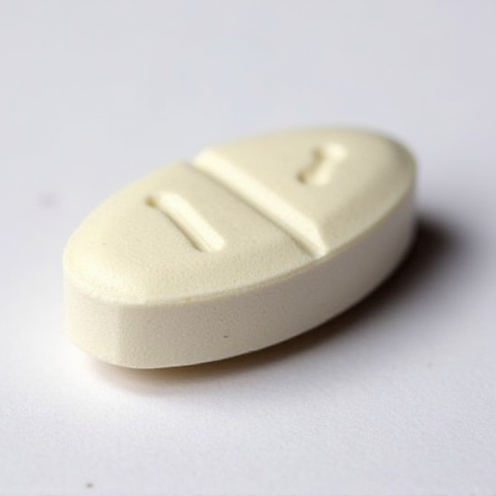Veramil 40mg Tablet
Product Info
| Prescription required | Yes |
| Marketer | Themis Medicare Ltd |
| Active Ingredient | Verapamil (40mg) |
| Storage | Store below 30°C |
| Chemical Class | Phenylalkylamine derivative |
| Habit Forming | No |
| Therapeutic Class | CARDIAC |
| Action Class | Calcium channel blockers- Nondihydropyridines |
| User Rating | 5.0 |
| User Reviews | 497 |
FAQ


















Veramil 40mg Tablet Reviews
Veramil 40mg may be taken with or without food, but it is better to take it regularly at a fixed time each day as advised by your doctor. Keep using this medicine even if you feel well. If you stop taking it suddenly, your condition may worsen. This medicine is only part of a treatment program that should include a healthy diet, regular exercise, and weight reduction as advised by your doctor.
The most common side effects of this medicine include constipation, dizziness, nausea, hypotension, edema, fatigue, and headache. These are usually mild and disappear after a short time. Consult your doctor if they bother you or do not go away. Drinking alcohol should be avoided while taking this medicine as it may worsen the side effects.
Before taking this medicine, let your doctor know if you have any liver or kidney problems. Also, inform your doctor if you have very low blood pressure (hypotension), heart failure, or if you recently had a heart attack and have fluid in your lungs. Your doctor may want to monitor your blood pressure while using it and you may need frequent blood tests. Pregnant or breast-feeding women should consult their doctor before taking it.
How Veramil 40mg Tablet Works
How to Use Veramil 40mg Tablet
Benefits of Veramil 40mg Tablet
- In Treatment of Angina (heart-related chest pain): Veramil 40mg helps treat heart-related chest pain (angina attack) as well as prevent it from happening in the future. However, it should not be used for acute attacks of angina. It works by relaxing and widening blood vessels in the heart. This makes it easier for blood to flow to the heart, so it gets more oxygen. This medicine thus helps to increase your ability to exercise and go about your daily life more easily and confidently. It should be taken regularly to be effective. Do not stop taking it without your doctor’s advice, even if you feel well.
- In Treatment of Hypertension (high blood pressure): Veramil 40mg works by relaxing blood vessels so that blood can flow more easily around your body. This lowers your blood pressure and reduces your risk of having a stroke, heart attack, or kidney problems in the future. It must be taken regularly as prescribed to be effective. You do not usually feel any direct benefit from taking this medicine, but it works in the long term to keep you well. Do not stop taking this medicine without your doctor’s advice, even if you feel well.
- In Treatment of Arrhythmia: Veramil 40mg may also be used to treat abnormal heart rhythms (arrhythmia). It may help stop an abnormal rhythm while it is happening or prevent its occurrence in the first place.
Uses of Veramil 40mg Tablet
- Treatment of Hypertension (high blood pressure)
- Treatment of Angina (heart-related chest pain)
- Treatment of Arrhythmia
Veramil 40mg Tablet Side Effects

Safety Tips
Quick Tips
- It may cause you to feel lightheaded or weak especially when you stand up (orthostatic hypotension). Rise slowly if you have been sitting or lying down.
- Do not stop taking it suddenly without talking to your doctor first.
- It may cause dizziness or sleepiness. Do not drive or do anything requiring concentration until you know how it affects you.
- It is best to avoid drinking alcohol while taking Veramil 40mg as it may make the side effects worse.
References
- Hume JR, Grant AO. Agents Used in Cardiac Arrhythmias. In: Katzung BG, Masters SB, Trevor AJ, editors. Basic and Clinical Pharmacology. 11th ed. New Delhi, India: Tata McGraw Hill Education Private Limited; 2009. p. 243.
- Chaves RG, Lamounier JA. Breastfeeding and maternal medications. J Pediatr (Rio J). 2004;80(5 Suppl):S189-S198.
- Briggs GG, Freeman RK, editors. A Reference Guide to Fetal and Neonatal Risk: Drugs in Pregnancy and Lactation. 10th ed. Philadelphia, PA: Wolters Kluwer Health; 2015. pp. 1469-70.
- Verapamil hydrochloride [Drug Label]. New York, New York: G.D. Searle LLC; 2009.
- Opie LH. Calcium Channel Blockers. In: Opie LH, Gersh BJ, editors. Drugs for the Heart. 8th ed. Philadelphia, Pennsylvania: Elsevier Saunders; 2013. pp. 73-78.
- Drugs.com. Verapamil Drug Interactions.
- Verapamil hydrochloride tablets. New York, New York: G.D. Searle; 2013.
- Central Drugs Standard Control Organisation (CDSCO).
- Sampson KJ, Kass RS. Anti-Arrhythmic Drugs. In: Brunton LL, Chabner BA, Knollmann BC, editors. Goodman & Gilman’s: The Pharmacological Basis of Therapeutics. 12th ed. New York, New York: McGraw-Hill Medical; 2011. p. 831.
